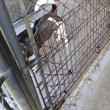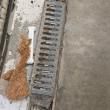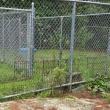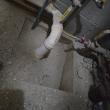Edgecomb campus in dire need of new location, new digs
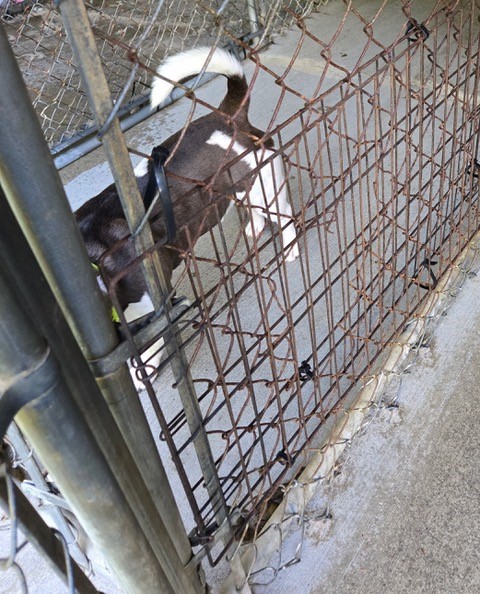 Chainlink fence repair. Midcoast Humane photo
Chainlink fence repair. Midcoast Humane photo
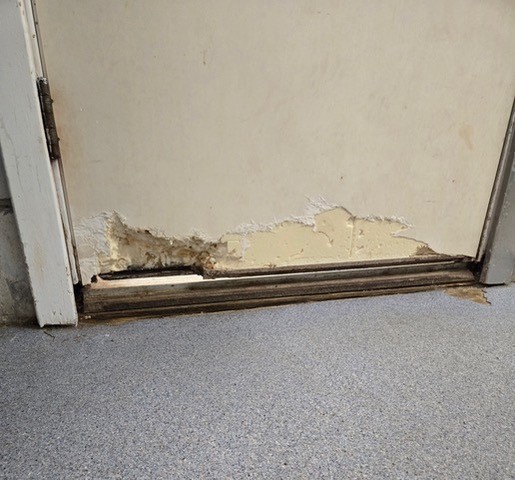 Door chewed by marsh rats. Midcoast Humane photo
Door chewed by marsh rats. Midcoast Humane photo
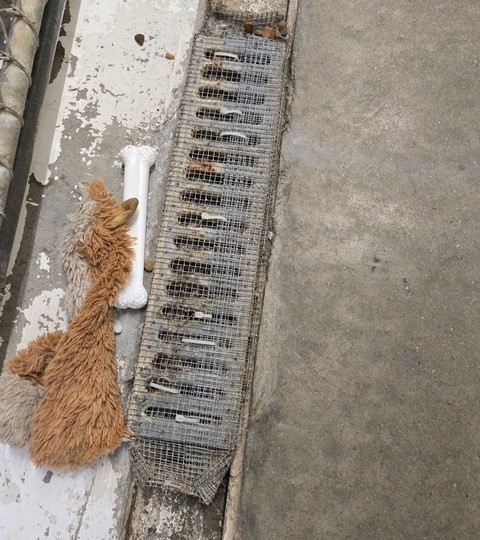 Drain. Midcoast Humane photo
Drain. Midcoast Humane photo
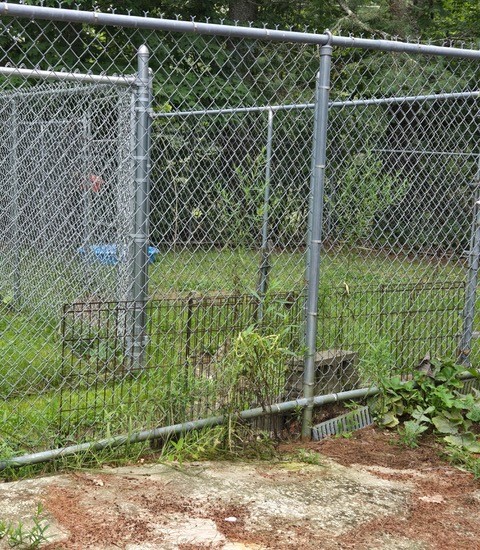 Fence repair. Midcoast Humane photo
Fence repair. Midcoast Humane photo
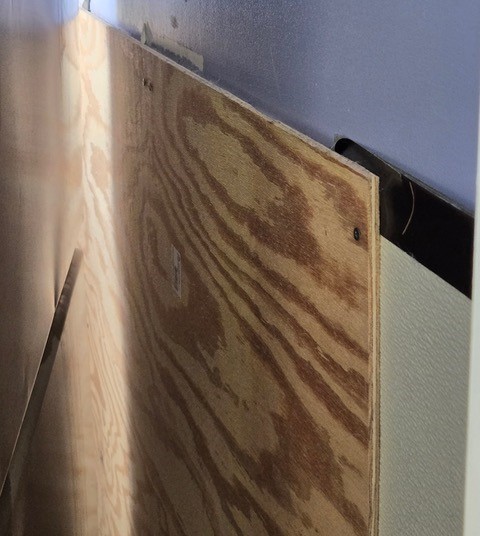 Patched cat room. Midcoast Humane photo
Patched cat room. Midcoast Humane photo
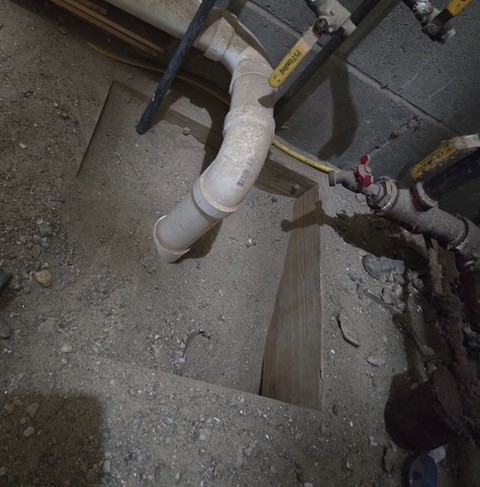 Midcoast Humane photo
Midcoast Humane photo
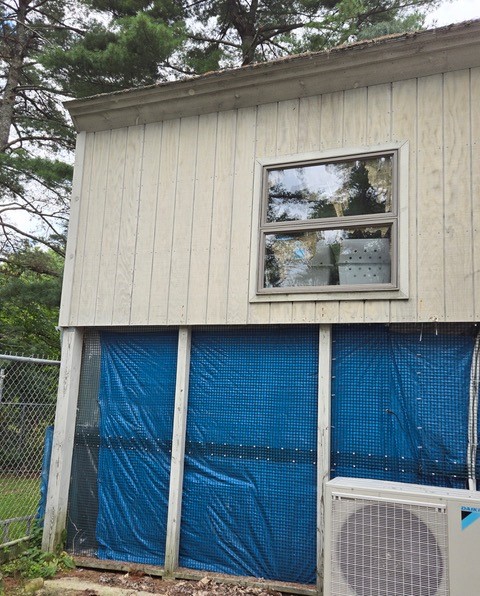 Outside view of Midcoast Humane’s Edgecomb campus. Midcoast Humane photo
Outside view of Midcoast Humane’s Edgecomb campus. Midcoast Humane photo
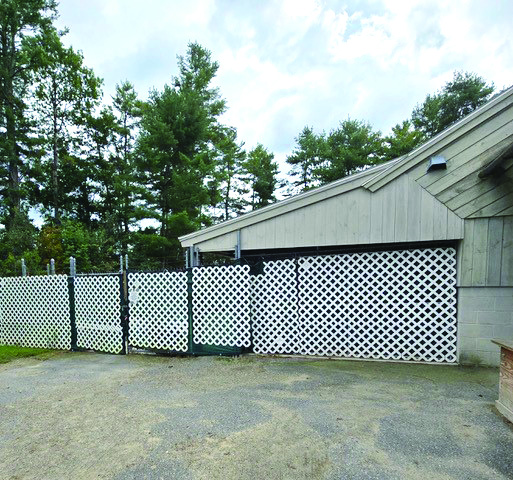 Outside Midcoast Humane's Edgecomb campus. Courtesy of Midcoast Humane
Outside Midcoast Humane's Edgecomb campus. Courtesy of Midcoast Humane
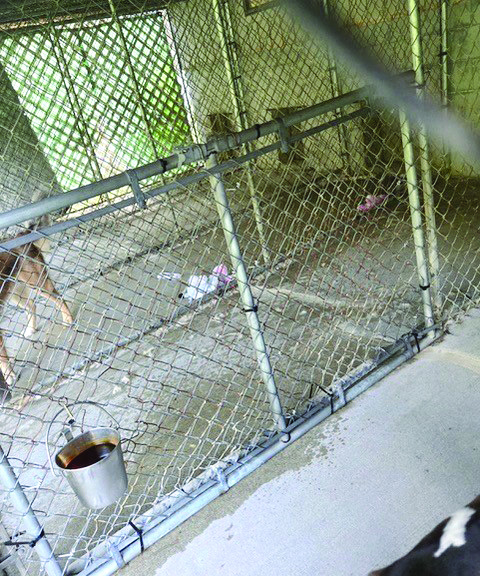 Outdoor kennels. Midcoast Humane photo
Outdoor kennels. Midcoast Humane photo
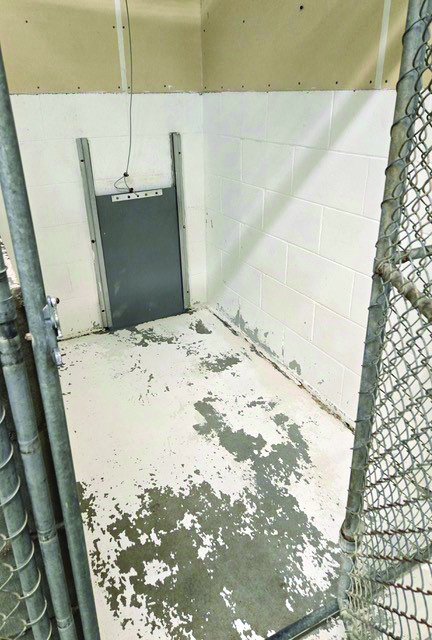 An interior kennel. Midcoast Humane photo
An interior kennel. Midcoast Humane photo
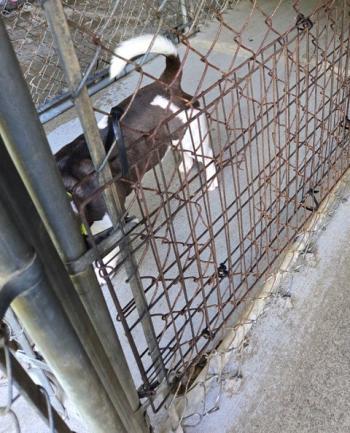 Chainlink fence repair. Midcoast Humane photo
Chainlink fence repair. Midcoast Humane photo
 Door chewed by marsh rats. Midcoast Humane photo
Door chewed by marsh rats. Midcoast Humane photo
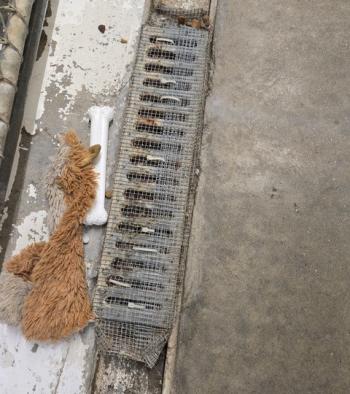 Drain. Midcoast Humane photo
Drain. Midcoast Humane photo
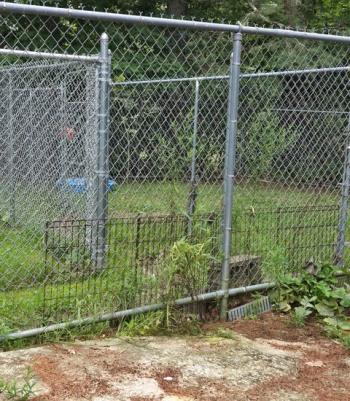 Fence repair. Midcoast Humane photo
Fence repair. Midcoast Humane photo
 Patched cat room. Midcoast Humane photo
Patched cat room. Midcoast Humane photo
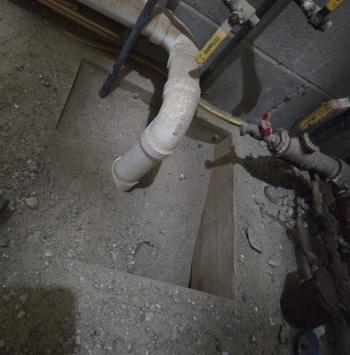 Midcoast Humane photo
Midcoast Humane photo
 Outside view of Midcoast Humane’s Edgecomb campus. Midcoast Humane photo
Outside view of Midcoast Humane’s Edgecomb campus. Midcoast Humane photo
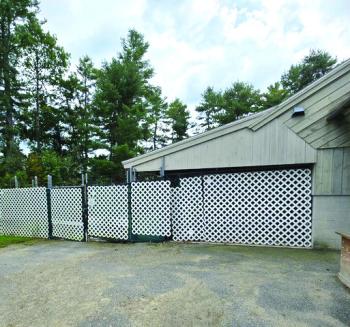 Outside Midcoast Humane's Edgecomb campus. Courtesy of Midcoast Humane
Outside Midcoast Humane's Edgecomb campus. Courtesy of Midcoast Humane
 Outdoor kennels. Midcoast Humane photo
Outdoor kennels. Midcoast Humane photo
 An interior kennel. Midcoast Humane photo
An interior kennel. Midcoast Humane photo
About 50-60 people were at CLC YMCA in Damariscotta for the initial Town Hall held by Midcoast Humane Executive Director Jess Townsend in mid-November. The purpose of the meeting was to inform Lincoln County residents about the dire condition of the aged buildings on the Edgecomb campus and discuss what action(s) could and should be taken for the animals that have to live there and the staff and volunteers.
There are two campuses - the main location in Brunswick now in a new location and new building and the Edgecomb campus that serves all of Lincoln County. Townsend noted Midcoast Humane also has a thrift store in Boothbay Harbor. In total, 39 municipalities feed into this organization, 21 of which are in Lincoln County. See the list of towns here.
Longtime residents and natives of the Boothbay region are familiar with the history, or part of this shelter’s history, as reported in the Boothbay Register over the decades. In 1954, Lorraine Nickerson founded Boothbay Region Humane Society. In 1986, Lincoln County Animal Shelter was built and established with Nickerson remaining at the helm. She also established Creature Comforts Thrift Store in Boothbay Harbor. The shop is still in operation. An Oct. 27, 2015 article in the Boothbay Register archives announced the merging of the Edgecomb campus, Lincoln County Animal Shelter and Coastal Humane Society after a three-month trial of each location maintaining its own identity.
The timeline after the merger, as presented by Townsend, included the closure of the Edgecomb/Lincoln County campus to the public in 2018 by the then-executive director of both locations. “What that meant was animal control was still bringing animals in, but people were no longer able to walk through, see the animals, and do their adoptions; essentially to be an open, functioning animal shelter.”
Townsend, hired as executive director in 2020, reopened the Edgecomb campus in 2021. “I don't know exactly why they initially chose to close it, I don't think that would have been the choice that I would have made, closed animal shelters make me very sad,” Townsend said. “You should have that little element of mayhem and chaos in your day. There needs to be happy kids running through the building.”
The staff at Edgecomb cares for the animals brought to the shelter, providing them with food and water, grooming, bathing, and just spending time getting to know them, taking them for a walk, or a short bit of play. That’s in addition to cleaning the kennels, litter boxes, cat room, etc.
People surrender their animal family members for a variety of reasons, including a change in financial or housing circumstances. Few property owners permit pets and in situations where a long-term rental property is being sold, or the rent is going up beyond what a tenant can afford. So, the staff at Edgecomb, and all animal shelters, must help families get through the experience of giving up one of their family members and the pain of having to walk out without their beloved pet who doesn’t understand why his or her people are leaving them behind. There is a foster care program available for families who need temporary care for their pet(s). Edgecomb also offers wellness clinics, low-cost spay and neutering; and a low-income/low-cost public assistance program.
This year, Midcoast Humane of Brunswick and Edgecomb/Lincoln County have taken in over 600 animals, 21% coming from the Edgecomb campus. Townsend is particularly concerned about Lincoln County: In addition to the surrendered pets, there are a high number of cats Townsend said are “loosely owned” or un-owned cats. Why so many? To answer that question, she went back to the COVID years.
Spay and neutering stopped during COVID all across the country. PPE (Personal Protective Equipment) – gloves, hair nets, masks – are necessary for veterinarians performing sterilization and other surgeries. Adapting work models that allowed vets the ability to continue seeing patients was necessary. For example, Boothbay Animal Hospital was open, but no one but the patients were permitted in the building. Masked staff came out to the parking lot for the patients and then returned them. Payment was conducted via telephone calls.
Townsend informed the group many of the older vets were not willing to adapt their business models. She then noted an article about retiring vets published in Bangor Daily News citing about 21% did retire for just that reason.
“And the kicker: The farther away you get from more populated areas, the easier it is for cat colonies to go unnoticed,” Townsend said.
Townsend’s slideshow included photographs of the interior and exterior of the Edgecomb campus illustrating the deterioration. The structure of the shelter was a house. Townsend said additions came later and in two stages. The garage that’s always been on the property is used for the designated animal control drop off space. Townsend addressed the issues stemming from the shelter being on marshland and its resident rodents.
“The marsh rats are tenacious. They have eaten their way in through stainless steel doors and interior doors. They have come up through the plumbing,” said Townsend. “I very intensely dislike that this is a work environment for our staff. And they're not complaining; they do what they need to do, but it is still not OK. This is all happening with a pest control company coming because there is an unending source of rats in the marsh. Even if you manage to plug all the holes, they chew new ones ... And the new flavor of horror that Tammy introduced me to recently is marsh snakes.”
The marsh is ever encroaching on the campus. How is the staff dealing with the disease-ridden intruders?
Said Townsend, “We have really good ‘MacGyvers’ on our volunteer and staff roster. However, spit and duct tape aren't a plan. And, here’s the kicker: The animals have to live there and the staff and volunteers work there.”
Townsend noted the dedication of the staff and volunteers at the Edgecomb campus. One volunteer has been with the organization for 30 years; another for 20 years. Townsend said how rare it is for people to stay with shelters that long.
She also noted the incredible community support from individuals and businesses. “I've never seen a community where when you say, we need a thing, and it shows up. Other places don't say we're running out of wet dog food, will you bring us some? And then cases show up the next day. The other thing I love about Maine is the way the shelters talk to each other. It's a wonderful network, the connectivity is amazing.”
A member of the audience asked if Midcoast Humane could sell the property. The issue: What, if anything, can be done with marshland?
Townsend told the group, laws regarding wetlands have changed since the property was first given to them. “Code enforcement has informed us we may not even put another shed on that property. So land use is a big deal in a marsh, and for us, rebuilding there isn't really a viable option, because we can only be in exactly our footprint, and the marsh will continue to encroach in the same way it already is. And with it more rats, more snakes.
“This need is urgent,” she said. “ I know what we need. but I can't fund any of it right now. We just built a facility in Brunswick and the organization doesn't have the capital to put towards another building.”
Townsend estimated $6 million - $10 million will be needed to continue providing the services offered now. She shared her new facility wish list: a low-cost, low-income clinic; humane education program with camp and classes on site and in the community; and an adoption center people do not feel sad to walk into.
“I want a facility where people who have to surrender their animals feel like their pet is not going to be worse (off) – and all of that comes at high square footage and high cost," she said.
A new location would need to have access to town water and sewer. Townsend noted the only towns in Lincoln County with these municipal services are Wiscasset, Boothbay Harbor, Damariscotta and Newcastle.
An Edgecomb woman told the group she had 22 acres in Edgecomb and a barn, but was told that without public/town sewer and water it would be of no use to Midcoast Humane.
The meeting did end on a high note, as the Edgecomb woman said she recently ran a very successful $75 million capital campaign for Babson College of Massachusetts and would be happy to help Midcoast Humane start its communication.
Applause followed from throughout the room.
For more information, visit https://midcoasthumane.org. Contact Jess Townsend at jtownsend@midcoasthumane.org











